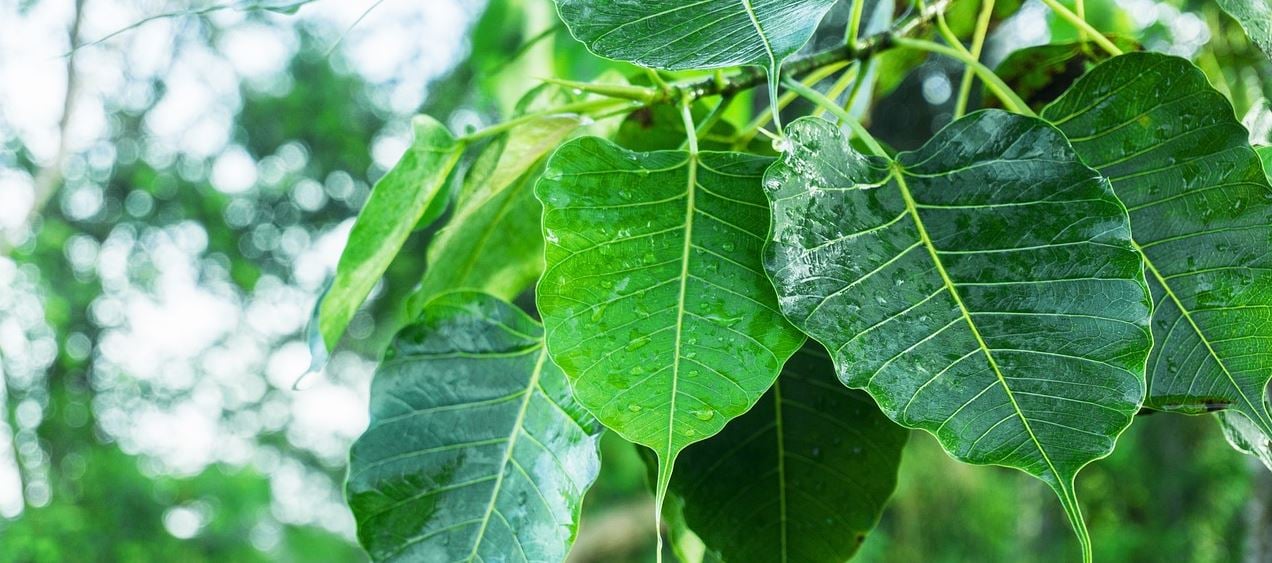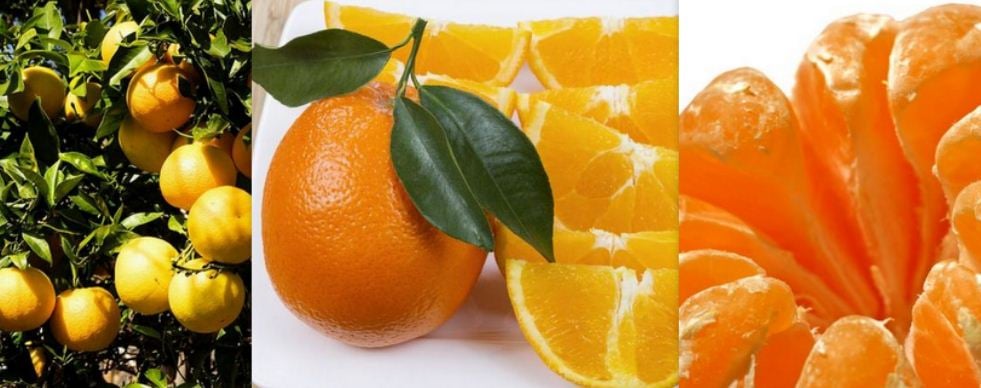13 Health Benefits of Chaya Leaf

Chaya leaf, scientifically known as Cnidoscolus aconitifolius or Cnidoscolus chayamansa, is a fast-growing perennial plant native to Mexico, Cambodia, and the US. Also known as the "spinach tree," this evergreen shrub belongs to the Euphorbiaceae family and is now cultivated in countries like Cuba, Australia, Guatemala, and Nigeria.
Chaya leaves are packed with numerous health benefits and high nutritional content and have been used traditionally to treat various ailments.
Nutritional Content of Chaya Leaf
Chaya leaves are an excellent source of nutrition, containing higher levels of essential nutrients than other green vegetables like spinach, amaranth, and cabbage. With twice the iron content of spinach and more calcium than other vegetables, chaya is a powerhouse of nutrition.
One chaya serves as much protein as an egg and is rich in vitamins A, B, and C and riboflavin, niacin, thiamine, potassium, iron, and copper. The leaves are also high in fiber, with a moisture content of 13.53%, which is lower than most leafy vegetables.
Nutritional Values for Chaya (100g serving)
Nutrition Quantity
Iron 9.3 - 11.4 mg
Protein 6.2 - 7.4 g
Calcium 200 - 330 mg
Vitamin A 1,357 IU
Vitamin C 165 - 205 mg
Phytochemicals in Chaya Leaf
Chaya leaves have long been valued for their medicinal properties. Recent research has revealed that these leaves are a powerhouse of bioactive compounds, including phenolic acids, alkaloids, saponins, terpenoids, flavonoids, and tannins.
Furthermore, they contain lutein and b-carotene (pro-vitamin A), making them incredibly beneficial for human health.
Alkaloids
Chaya leaves have long been used in traditional medicine for their health benefits due to the presence of various alkaloids. These compounds include trigonelline, vinblastine, dihydrositsirikine, palmatine, catharanthine, vindoline, and sitsirikine.
Studies have shown these compounds have anti-inflammatory, analgesic, antifungal, and antiviral properties. By consuming chaya leaves or products made from them - such as teas or capsules - people can benefit from these potent alkaloids while enjoying the pleasant taste of chaya leaves.
Saponins
Chaya (Cnidoscolus aconitifolius) leaves are a powerhouse of nutritional and medicinal benefits thanks to their high content of saponins. These steroid and terpenoid glycosides possess chemoprotective, antioxidant, and antimicrobial effects that help to protect against various diseases.
They have anti-inflammatory, antitumorigenic, antidiabetic, hepatoprotective, and immunomodulatory properties. As such, chaya leaves offer various health benefits that can aid in overall wellness.
Phenolic Acids
Phenolic acids in chaya leaves include vanillic acid, chlorogenic acid, ferulic acid, p-coumaric acid, sinapic acid, caffeic acid, and syringic acid.
Flavonoids
Flavonoids in chaya leaves include quercetin, catechin, rutin, kaemferol, epigallocatechin gallate, and procyanidin B1 and B2. These compounds act as antioxidants.
13 Health Benefits of Chaya Leaf: The Super Green You Need to Know About
This article will explore the 13 health benefits of chaya leaf and its potential uses as a natural remedy for various health conditions.
1. Anti-cancer Properties
Chaya leaf, also known as tree spinach, is gaining attention for its potential cancer-fighting properties. The leaves are rich in bioactive compounds such as alkaloids and flavonoids, which have been found to possess anti-cancer properties.
Studies suggest that these compounds may help inhibit the growth of cancer cells in the body and offer protection from various diseases.
2. Antioxidant Effects
Antioxidants are essential for overall health and well-being. They help protect our bodies from oxidative damage, which can lead to severe conditions like heart disease and high blood pressure. The leaves of the Chaya plant are known for their antioxidant content, which can help prevent diseases like cancer.
It's a good choice for those looking to increase their intake of antioxidants. It is packed with antioxidants, and chaya has many other health benefits, including improved digestion, better skin health, and increased energy levels.
3. Antifertility Effects
Recent studies on female rats have revealed some startling findings regarding the effects of chaya on hormone levels.
The research suggests that chaya may increase serum prolactin concentrations while lowering serum concentrations of estradiol, progesterone, follicle-stimulating, and luteinizing hormones. This could have far-reaching implications for women's health and potential benefits for reproduction and fertility.
4. Antimicrobial Properties
Recent research has uncovered the powerful antimicrobial properties of essential oil extracted from chaya leaves, which is effective against some of the most common and dangerous pathogens, including E. coli, S. typhi, and Salmonella.
This discovery suggests potential use in managing typhoid, gastroenteritis, and other bacterial infections. Furthermore, chaya leaves have shown promise in treating various other medical conditions, such as diabetes.
5. Antidiabetic Action
Chaya leaves are a potential natural remedy for diabetes management. Studies on Wister albino rats have revealed the presence of flavonoids and phenolic compounds like catechin and rutin, which have demonstrated hypoglycemic effects.
Individuals with Type 2 diabetes may be at an increased risk of prediabetes again or developing an autoimmune disorder.
People with Type 2 diabetes who took these compounds had a reduction of 13.1% in their blood sugar levels over 30 days after taking the use-on-demand tablets (KATZ et al., 2018).
This is a more common type than Type 1, and it's easier to treat. This is done without traditional medications and could become a useful supplement or alternative to regular medicine.
6. Alzheimer's Disease Prevention
Chaya leaves are gaining attention in the scientific community due to their potent phenolic compounds. Compounds such as coumaric acid, amentoflavone, and kaemferol have effectively blocked the activity of cholinesterase.
This enzyme helps regulate neurotransmission by hydrolyzing acetylcholine. As research continues into the potential health benefits of these compounds, it is becoming increasingly clear that chaya leaves could be used to treat neurological disorders and improve cognitive functioning.
7. Blood Cell Production
Chaya leaves are traditionally used in Ayurvedic medicine to improve the lifespan of erythrocytes, which are red blood cells, and strengthen the immune system. Vitamins and minerals in chaya, like vitamins A, C, zinc, iron, and copper, can help prevent diseases like cancer.
8. Erectile Dysfunction Treatment
Inhibiting arginase activity may benefit patients with erectile dysfunction, as it can help treat the condition's underlying cause. In addition, ethyl acetate extract from chaya leaves effectively treats erectile dysfunction, despite its negative impact on sexual desire.
9. Hepatic Protective Effects
The extract of chaya leaves contains a range of bioactive elements like saponins and antioxidants that may be beneficial to liver function.
The benefits of chaya leaf extract have been documented through animal research studies, showing significant improvements in liver function.
10. Laxative Properties
Several popular diets have touted that plants could help with digestive issues. Some people consume chaya leaves as part of their diet to help prevent constipation and improve digestion. This is because the leaves are high in fiber, a natural laxative for some people.
11. Kidney Stone Prevention
Chaya leaves have been shown to have pain-relieving and healing properties in traditional Ayurvedic medicine. Scientific studies also show that these leaves help patients with kidney stones avoid the need for surgery or other treatment.
12. Skin Disorder Relief
Chaya is a plant extract that is purified and standardized for its beneficial properties. Chaya extracts have been used for centuries in Ayurveda and Traditional Chinese Medicine and are effective at treating skin disorders, gum disease, toothache, inflammation, boils, and pimples.
13. Arthritis and Muscle Disorder Relief
Chaya leaves have been used in Ayurveda herbalism for thousands of years to help relieve symptoms of arthritis, muscle disorders, and more. They contain tannins that positively affect the body's circulatory system and may help ease joint pain.
Culinary Uses of Chaya
Chaya leaves, and young shoots can be consumed, though older leaves are also edible. It is essential to cook the leaves before eating, as raw leaves contain cyanogenic glycosides that can cause cyanide poisoning. Boil or fry fresh leaves for at least 5 minutes and older leaves for 10 to 15 minutes.
Since chaya leaves taste bland, you can spice them up by stir-frying with garlic and onions or adding them to soups and omelets.
Chaya Tea
Chaya tea is a traditional drink that has been consumed for centuries. It is made by boiling dried chaya leaves in water and adding optional ingredients like honey, ginger, and lemon juice. The drink can be served hot or stored in the refrigerator for later consumption.
Other Uses of Chaya Plant
Apart from its health benefits, chaya leaves have different uses:
-
As fodder for chickens, improving egg production.
-
As a nitrogen-rich fertilizer for plants.
-
As a living fence in home gardens and a shade for other trees, such as coffee plants.
Chaya Plant Side Effects and Toxicity
The Chaya plant has trichomes that can cause skin irritation and allergies. As mentioned earlier, raw chaya leaves contain cyanogenic glycosides, which can cause cyanide poisoning. Cooking the leaves properly can reduce the risk of poisoning.
In conclusion, chaya leaf is a versatile plant with many health benefits and potential uses. Including chaya in your diet can help improve your overall health and well-being while providing extra nutritional content compared to other leafy greens.




